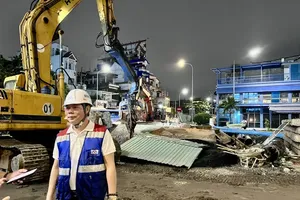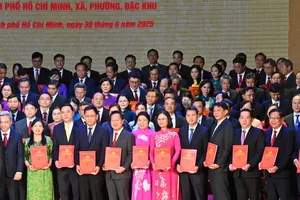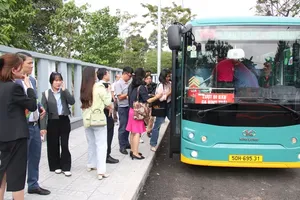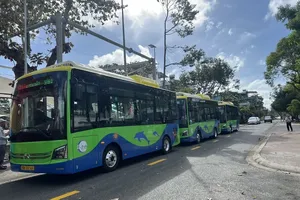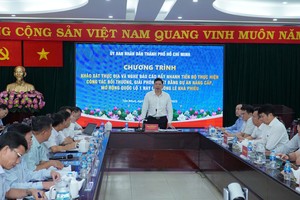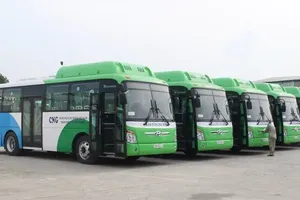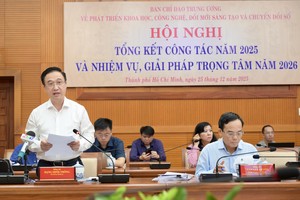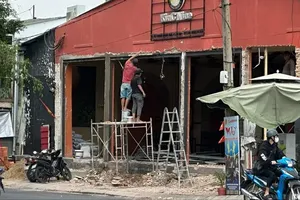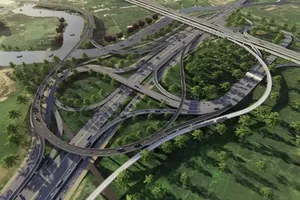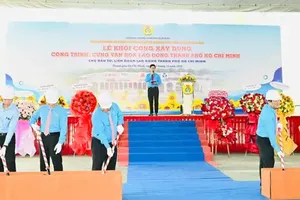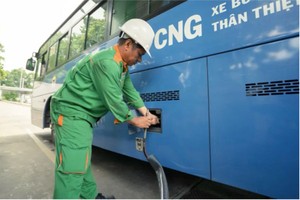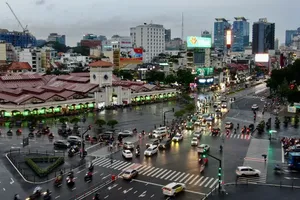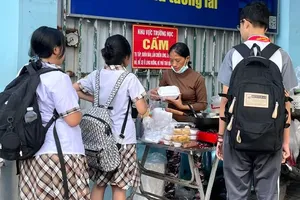The Department of Natural Resources and Environment in Ho Chi Minh City is seeking investors for recycling of its urban mud waste via the BOO method (Build-Operate-Own), which at present is a burden as not all of it is being handled efficiently.
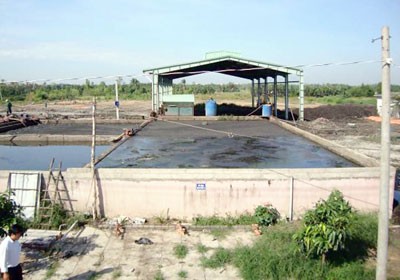
Nguyen Trung Viet, head of the Climate Change Office in Ho Chi Minh City, said that since 2003 they have been seeking the right investors to undertake the responsibility of recycling the excess pile of mud waste.
So far, urban solid waste is being collected and treated by five investing companies and the HCMC Environment Company has a plant to burn a maximum of 21 tons of toxic waste per day.
However, no investor is as yet recycling the mud waste. About 1,500-1,900 cubic meters of mud waste is discharged every day from canal dredging, manholes and drains, production units, industrial and export processing zones.
Besides, millions of cubic meters of mud waste is being released in a year from nearly 1.8 million households, wastewater treatment plants and environment improvement projects.
According to the Department of Science and Technology, of serious concern is mud waste from canal dredging which comprises of sand, plastic, cloth, tin, metal, lubricant and oil.
At present, only mud waste from the drainage system of industrial zones and production units is being burnt.
Some mud waste from cesspools and wastewater treatment plants is being collected to make organic fertilizer in Hoa Binh mud treatment plant in Da Phuoc waste treatment complex in Binh Chanh District.
Mud waste from water supply plants and canal dredging as well as construction projects is being transported to unknown locations.
The total cost to treat mud waste is estimated at VND1 trillion (US$48 million) a year.
However, the City has no financial resources to cover this expense and hence the waste is being dumped at the first convenient place.
Meanwhile, the Binh Hung wastewater treatment plant doesn’t know where to dump 4,000 tons of mud waste which has not been treated properly and is now given off a stinking smell that is affecting surrounding areas.
Le Trung Tuan Anh, deputy head of the solid waste management division under the Department of Natural Resources and Environment, said that authorized organs are very confused in dealing with mud waste.
The Department of Natural Resources and Environment is now calling investors to develop recycling plants via the BOO method. Investors will be paid to handle mud waste from public areas like drainage pipes and canal dredging.
HCMC will provide the investor with 20 hectares of land in Da Phuoc waste treatment complex to build a mud waste treatment plant, which will be ready in 3-5 years.

